Yiga says his coffee is now his full time job after quitting mixing poultry feeds business
Vincent Yiga, 47, is a renowned businessman in Mityana Municipality. He’s well known for mixing poultry feeds, a business he has done for about two decades. He has achieved a lot through this business. However, his business started slowing down after Ugandans started importing ‘concentrates’ commonly called ‘akarungo’ that has since replaced many ingredients used to mix feeds. What a farmer now needs is maize bran or broken maize and concentrates, almost rendering the other ingredients useless. This has literally killed the business of mixing feeds.
Compounded by what he calls high taxes, Yiga had to look for an alternative business to survive. After careful research, he chose to engage into full time commercial farming, focusing on organic coffee farming.
He left his struggling poultry feeds business under the management of the wife and plans to close it down completely once his farm becomes profitable.
Hi farm is located in Mayirye village, Kakindu Sub-County, Mityana district, approximately 10km off Zigoti Town Council along Kampala- Mityana highway.
Yiga joined coffee farming business in May 2020 during the COVID-19 pandemic lockdown. He first planted four acres of CWD-r varieties (KR Varieties) which have since started producing.
He cares about his coffee well and has since expanded to 15 acres at different stages of growth.
“This is my main job now. It’s a business I have fallen in love with. I spend most of my time here,” he says.
During our visit to the farm on April 07, 2023, we found Yiga and his son picking ripe red cherries. His son is yet to go to University.
“We have slowly started harvesting from the four acres. So far, we have over 10 bags of Kiboko (dry cherries) but we expect more in May this year. The coffee will also be making three years in May,” Yiga says, adding that he’s happy that his coffee has started paying him back.
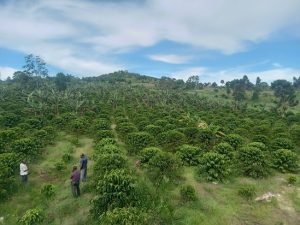
Yiga’s coffee is also inter-cropped with bananas (matooke) but they are widely spaced. He says the matooke is mainly for food security purposes.
“We eat matooke. Our workers including Prisoners also eat it. We don’t spend much on food at home and on workers,” he says.
Irrigation System
Asked on whether he has received any Government support, Yiga said he used his savings to buy most of the plantlets. He only received about 1,500 plantlets from Government through Uganda Coffee Development Authority (UCDA).
He adds that Government installed a small model irrigation system at his farm so that other farmers can learn and appreciate the importance of irrigation.
“I started this farm with passion. Before I started, I carried out extensive research on what I needed to succeed. I excavated a pond before I planted coffee because I knew at some point I would need water for irrigation,” Yiga says, adding an agricultural extension officer from Mityana district passed by his farm and told him of an opportunity to set up a small model irrigation system at his farm, an opportunity he warmly welcomed.
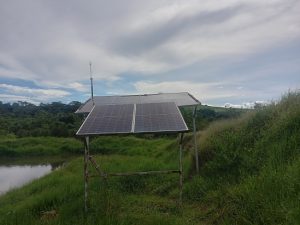
He uses the solar-powered system to pump water to the elevated 5,000-litre tank. He irrigates his coffee using gravitational force because his land is on a gentle slope.
“The irrigation system capacity is a bit limited compared to the acreage I have, but it has helped me a great deal to ensure newly planted coffee trees don’t dry up during the dry spell. I need about three 10,000-litre tanks to properly irrigate this farm,” he says, adding that he plans to install drip irrigation in future.
“I call on Government to support me further on irrigation. Once I’m sorted with proper irrigation system, the rest I will do it myself,” he says.
Going Organic
Yiga says he’s not ready to use synthetic/inorganic fertilizers because he wants his coffee to be grown ‘organically’.
He says he will mainly use well decomposed cow dung and coffee husks to improve the fertility of his soil.
“Unlike artificial fertilizers, cow dung can stay longer in the soil because it’s a slow-release fertilizer. When you use artificial fertilizers, they are used up within six months. This means you have to buy again the fertilizers which is expensive,” he says, adding that he’ll apply two basins of well decomposed manure on each coffee tree above three years in July and will repeat the same after two years. At planting time, he applies a basin-full of manure.
Since he has an elf truck, Yiga says he gets cow dung from the neighbouring Gomba district.
“I get some cow dung free of charge from friends. I also buy some at a cheaper cost,” he says.
He adds that he supplements manure with well selected and approved foliar fertilizers like BlackOff’ Liquid Organic Fertilizer, a broad spectrum pest-repellent natural fertilizer produced by Reticia Products Research.
“You can see how healthy my coffee looks,” he says pointing to his shamba.
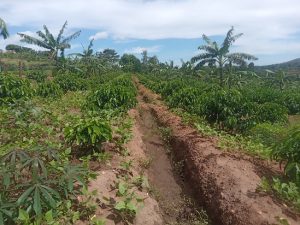
He adds: “I have only used cow dung and BlackOff. Black Coffee Twig Borer (BCTB) was my biggest challenge here but with the help of BlackOff, it has literally become history. I used to cut off the affected twigs and fill three bags but BlackOff has reduced the infestation by 95%.”
On August 19, 2022, the Agricultural Chemicals Board under the Ministry of Agriculture, Animal Industry and Fisheries (MAAIF) approved the registration of ‘Black Off’ after Government-owned Namalere Agricultural Centre carried out extensive research on the product and found its composition to be NPK 4:14:11+Amino Acids (in technical terms).
No permanent workers
At the moment, Yiga doesn’t have permanent workers. He says it would be suicidal for him to have permanent workers when the farm isn’t yet fully productive.
“I get workers when they are needed and pay them for the work done. I normally use prisoners. I’m here as a manager and supervisor. The prisoners are doing a good job for me; I will continue employing them whenever there is need,” he says.
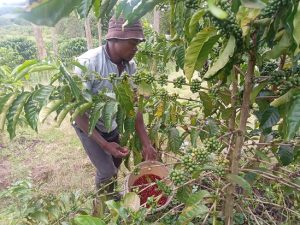
He also plans to have permanent workers in future when the farm expands and is profitable.
Asked about his investment capital, Yiga says, “It is in millions of shillings.”
“I keep proper records of every expenditure on this farm but I don’t want to look at the total expenditure at the moment. What I can tell you is that I have invested millions of money into the farm. I am happy that I will soon stop using my savings to invest in the farm because we have slowly started harvesting. It’s about to start looking after itself,” Yiga says.
Future Plans
Yiga targets to at least produce 300 bags of Kiboko every year but his focus is to sell Fair Average Quality (Kasse) or graded coffee.
“I also want to have my own processing factory. I want to have my own coffee brand ready for consumption,” he says, adding that he also only wants to sell his coffee to exporters.
“In future, I also want to start exporting coffee,” he says.
Yiga also wants to buy a few goats and dairy cows to help him diversify the farm and get farm manure.
He has dug several big trenches in the farm to control soil erosion. In addition, he has also planted pastures (mainly Sugar Napier grass) on the soil at the edge of trenches. He will use this to feed his cows.
Lessons for farmers
Yiga says farmers should learn to be passionate about their work and allocate ample time to it. He also challenges them to keep learning new farming and business practice so as to improve production and productivity.
“Many farmers don’t know why we have three stems on each coffee tree. I have come to know that one stem is for the farm, the second for the workers and the third for the farm owner,” he says, adding that a good coffee farmer should know what to reinvest in the farm and what to take out.
For tips or get featured, opinions and advertising, Tel: 0775170346/0703828741/staddewo@gmail.com. Follow us on Twitter: @TaddewoS @BusinessFocusug


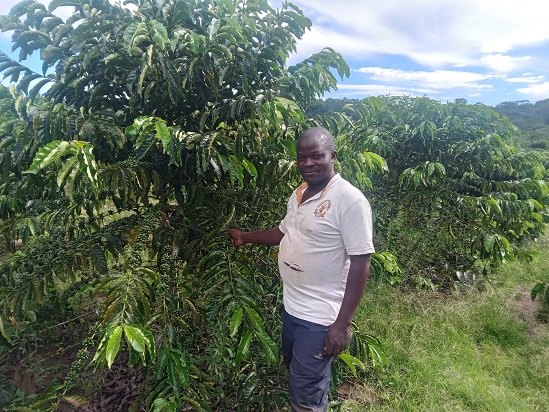


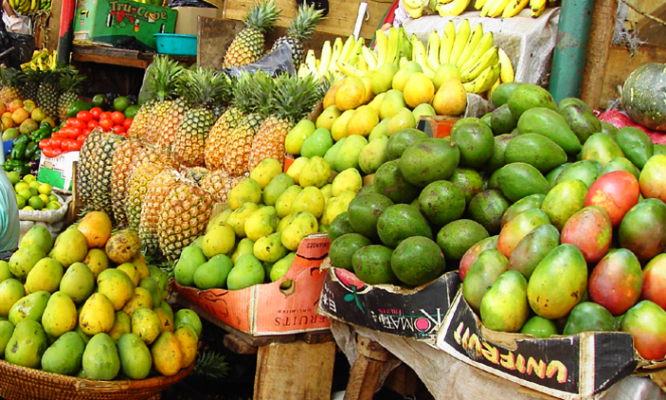
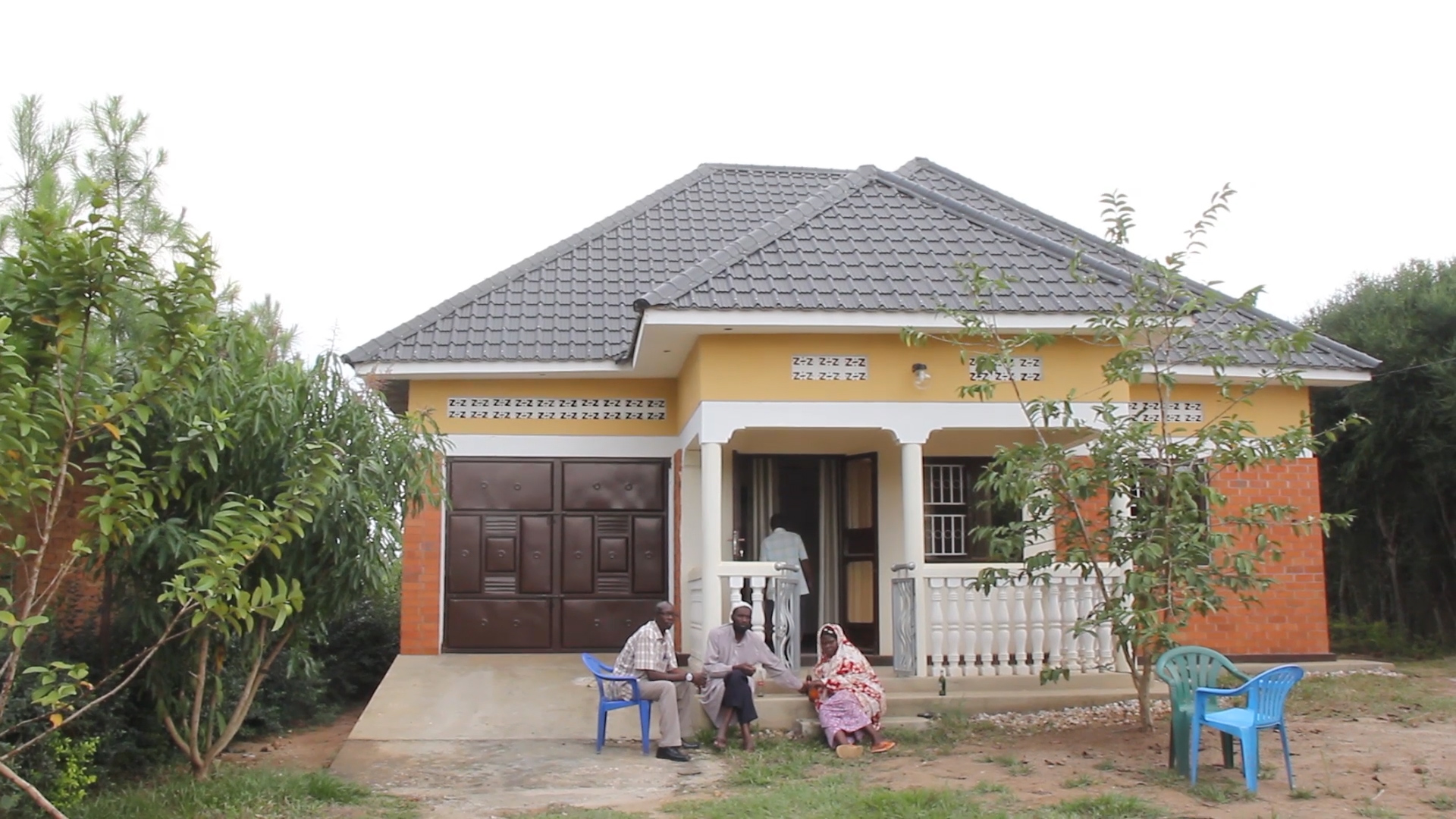
I want to be helped out in coffee farming
Especially if i can be connected to government agriculture extension workers for technical assistance.
Thank you
I real like to thank my Dad Mr vicent yiga for sharing his experience to help others know how best they can do and go inorder to promote agriculture in Uganda am so proud of you Dad
How much can I earn from an acre of coffee in a season. We appreciate your effort and knowledge shared.
No video to us who can’t read
It’s a good idea and also you done a good job, but you should also to make a research on the other methods of coffee growing ie Brazilian style, or any other according to your experience like I lugemwa Bashir Shaban I use a spacing of 10ft by 5ft, it works well in terms of quality and quantity per tree.
Where do you farm from Mr Lugemwa?
Thank you for sharing your experiences in farming. I am an organic farmer and what I know is that using prisoners on your farm disqualifies you to be an organic farmer.
I like the setting of coffee growing and I do supplement on the organic way that is the use of organic manure and pesticide to lower the cost of production to increase profits.